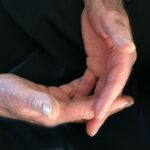💥 The Mental Battle of Testosterone Recovery—And How to Win It Daily
Testosterone recovery is a journey that tests not just your body, but your mind. Whether you’re coming off TRT, healing after overtraining, or trying to bounce back from stress-induced drops, knowing how to stay motivated during testosterone recovery can make or break your results.
Without motivation, even the best plan fails. Your brain chemistry is shifting, energy is inconsistent, and libido might be flat. It’s easy to spiral into doubt, laziness, or self-sabotage. But the truth is, testosterone recovery isn’t just physical—it’s psychological warfare.
1. Track Micro-Wins, Not Just Hormone Levels
Your testosterone may take weeks to normalize. But energy, mood, sleep, and libido can improve in micro-ways daily. Logging these tiny victories helps rewire your brain to stay in the game. Celebrate days you wake up earlier, sleep deeper, or feel more focused.
2. Anchor to Your “Why” Daily
Ask yourself: Why do you want your testosterone back? More confidence? Better sex? More drive in life? Write it down and revisit it every morning. This anchors your emotional brain to your mission and keeps your actions aligned.
3. Move Every Day—Even If It’s Light
Recovery doesn’t mean being sedentary. Gentle workouts, walking, yoga, or mobility sessions help regulate hormones, boost endorphins, and fight depression. Motion creates emotion—staying active reinforces identity and prevents mental ruts.
This tip also complements strategies from our article on how posture affects circulation, since movement directly improves blood flow and hormonal stability.
4. Eat to Stabilize Mood and Hormones
Your diet directly affects dopamine and serotonin—the two mood chemicals that drive motivation. Eat whole foods rich in zinc, magnesium, omega-3s, and B vitamins. Avoid sugar crashes, ultra-processed snacks, and over-caffeination, which destroy momentum.
5. Social Support Isn’t Optional
Men often isolate during hormone dips. But community, accountability, and shared struggle are key. Talk to someone who’s been through it. Or build a support team—therapist, coach, brother, online tribe—that reminds you you’re not broken or alone.
6. Use “Low Days” Strategically
You won’t feel 100% every day. On low days, lower your standards but don’t skip the habits. If you can’t work out, walk. If you can’t journal, meditate for 3 minutes. Keeping the chain alive preserves identity and builds grit.
7. Visualize the End Game
Spend 2 minutes daily visualizing yourself on the other side: strong, sharp, sexual. This primes your subconscious and boosts dopamine—the molecule of motivation. Your brain believes what you vividly rehearse.
8. Supplement Intelligently
Natural boosters like ashwagandha, tongkat ali, vitamin D, and boron support hormone recovery. They won’t replace lifestyle—but combined with consistency, they speed things up and support mental clarity along the way.
Need to improve sleep too? See our article on the benefits of deep sleep for male hormones.
🧠 Motivation During Recovery: What Works vs. What Fails
| ✅ Builds Momentum | ❌ Kills Progress |
|---|---|
| Tracking micro-wins | Obsessing over hormone levels |
| Moving daily (even light) | Sedentary behavior & procrastination |
| Visualizing end results | Negative self-talk & doubt |
| Social support & connection | Isolation and shame spirals |
| Purpose-driven goals | Random routines with no vision |
This Is Temporary—But the Discipline You Build Is Forever
Learning how to stay motivated during testosterone recovery isn’t just about getting through a few rough weeks—it’s about mastering yourself under pressure. Recovery gives you the chance to forge discipline, identity, and mental strength that will last beyond testosterone.
Want a full protocol to restore hormones, energy, sex drive, and masculine power naturally? Start the proven system here and take back control of your performance and vitality—on your terms.
And if you’re feeling demotivated due to low libido, read what causes low libido after age 25 and start fixing it at the root.
9. Structure Your Day with Hormone-Friendly Habits
When recovering testosterone, routines matter more than ever. Your body thrives on rhythm. Wake up and sleep at consistent times. Eat protein-rich breakfasts. Get sunlight early. These micro-habits reset your circadian clock and support testosterone balance.
Chaos breeds confusion. Discipline brings clarity. And structure becomes your motivation when willpower fades.
10. Use the “Momentum Loop” Framework
Motivation follows action, not the other way around. The Momentum Loop is simple: Start small → Win → Feel capable → Do more. Most men wait to feel ready. But testosterone recovery rewards those who act first—especially when it’s hard.
Do the workout. Take the cold shower. Log the journal. The first 5 minutes create the energy you need for the next 50.
11. Avoid Dopamine Overload (and Drain)
Scrolling endlessly, bingeing porn or video games, and chasing fast hits of stimulation burns out your dopamine. This leaves you numb, lazy, and unmotivated. During testosterone recovery, protect your dopamine like gold.
Replace high-dopamine junk with clean dopamine hits: intense exercise, social connection, laughter, goal-setting. These rewire your reward system to crave progress instead of passive pleasure.
12. Reframe Recovery as a Warrior’s Rite
Most men view recovery as weakness. Flip the frame. See it as your crucible. The moment that separates the average from the elite. Testosterone recovery is a test of manhood—not just a health protocol.
This reframe lights a fire in your chest. It gives pain purpose. Discipline becomes honor. And motivation becomes identity.
13. Measure What You Can Control
You can’t always control your hormone numbers. But you can control how many workouts you did this week. How many meals you prepped. How many hours you slept. Tracking controllables builds momentum and keeps you focused on what matters.
Over time, these habits snowball into hormonal resilience and unshakable confidence.
14. Reconnect With Real Masculine Energy
Modern life numbs masculinity—porn, social media, fake dopamine, processed food. Testosterone recovery is your chance to reconnect with raw, grounded, primal energy. Cut the noise. Touch nature. Move weight. Make eye contact. Protect. Provide. Breathe deep.
The more you embody your masculine edge, the more your body responds by producing hormones that match that identity.
15. Turn Setbacks Into Fuel
Missed a workout? Slept like crap? Relapsed into a bad habit? Good. Use it. That’s data. That’s resistance. That’s the weight that will build a stronger you—if you choose to rise.
Every man stumbles. What matters is how fast you recommit. Shrink the gap between mistake and momentum. That’s the muscle of motivation.
Rise, Rebuild, Reclaim
If you’ve made it this far, you already have what it takes. You care. You’re learning. You’re moving. Now it’s time to go all in.
Mastering {focus_keyword} isn’t just about testosterone—it’s about becoming the kind of man who doesn’t quit when things get hard. The kind of man who leads, builds, and inspires—even in the shadows of recovery.
❓ Frequently Asked Questions
How do I stay motivated when my testosterone is low?
Shift focus from how you feel to what you can control. Structure, daily movement, sunlight, and micro-goals keep your identity strong while hormones rebalance.
Can mindset really influence testosterone recovery?
Yes. Stress and negative thinking elevate cortisol, which blocks testosterone. A focused, empowered mindset accelerates recovery more than any supplement alone.
 15 Mental Strategies to Stay Motivated During Testosterone Recovery – masculine growth symbolism – via supremepenis.com
15 Mental Strategies to Stay Motivated During Testosterone Recovery – masculine growth symbolism – via supremepenis.com







